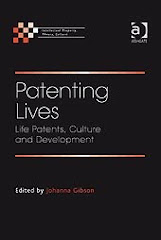
An interesting exchange took place this week in The Times newspaper, in London. Terence Kealey, Vice-Chancellor of Buckingham University, (the only private university in the United Kingdom) argued that private enterprise is not just contributing to scientific innovation, it is essential for it. Referring to 1940 US government spending, he describes little investment in applied science and pure science, with the lion's share going on defence and agriculture. On the other hand, Kealey presents the private sector (and private money) as the only real means by which research and development in pure science was being undertaken.
However, what Kealey doesn't really consider is the innovation within funding and research cultures themselves. While drawing obvious parallels between wartime spending in the
 1940s, and US spending priorities today, Kealey criticises the National Science Foundation model, developed by engineer, Vannevar Bush (who also developed the concept of memex, sometimes considered a predecessor of the World Wide Web), where federal funding is distributed to university scientists through competition for grants. In doing so, he refers to Vannevar Bush's warning "that federal money might not just supplement the private money but might, instead, 'drive it out' and end up reducing the total spent on research." To support this statement today, Kealey notes the 2003 Organisation for Economic Co-Operation and Development (OECD) survey to argue that "only private research powers economic growth." That report suggests that public funding of R&D "crowds out resources that could be alternatively used by the private sector, including private R&D."
1940s, and US spending priorities today, Kealey criticises the National Science Foundation model, developed by engineer, Vannevar Bush (who also developed the concept of memex, sometimes considered a predecessor of the World Wide Web), where federal funding is distributed to university scientists through competition for grants. In doing so, he refers to Vannevar Bush's warning "that federal money might not just supplement the private money but might, instead, 'drive it out' and end up reducing the total spent on research." To support this statement today, Kealey notes the 2003 Organisation for Economic Co-Operation and Development (OECD) survey to argue that "only private research powers economic growth." That report suggests that public funding of R&D "crowds out resources that could be alternatively used by the private sector, including private R&D."This seems to be an extraordinary interpretation, suggesting that public funding is somehow rivalrous with the ventures of private interests in a race for "profitable" results. Using the Human Genome Project as his prime example, Kealey argues that this illustrates the point "that science is not the public good of Bush's book. Science is not a field of endeavour on which taxpayers' money need be spent."
In a letter to the newspaper, Dr AR Williamson identifies quite different issues. Indeed, he suggests that scientific research driven purely by private (and thus commercial) concerns might compromise the breadth of that research and the clarity with which it is communicated and disseminated. Also drawing upon the Human Genome Project, Dr Williamson rightly notes it was not merely a question of profitability that motivated greater public investment in the project, in the light of Celera's interests, but the fear that Celera would obtain patents without producing a complete reference sequence.
In other words, Celera would research to the limit of profitability. Public funding, on the other hand, will investigate to the limits of knowledge.



No comments:
Post a Comment